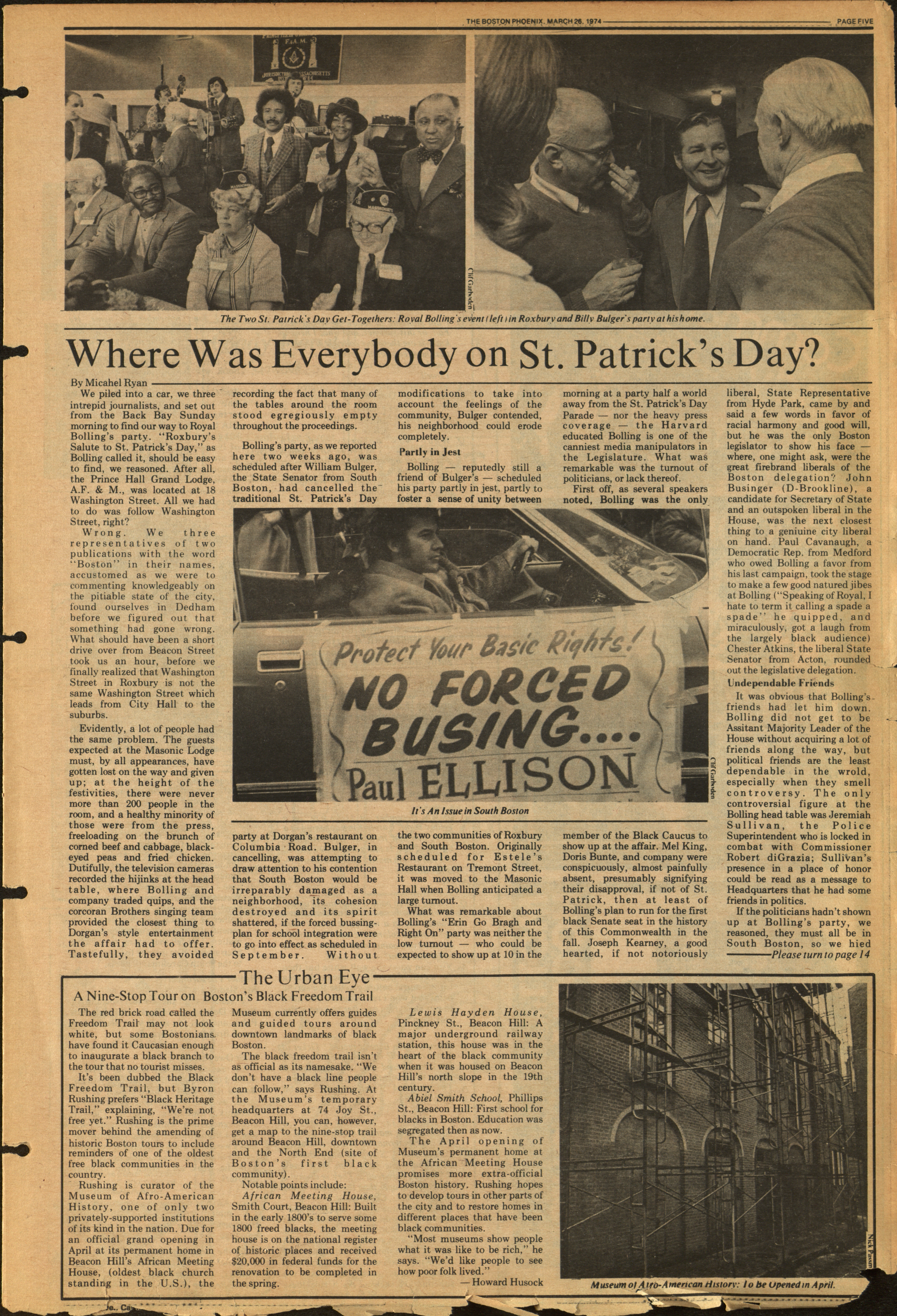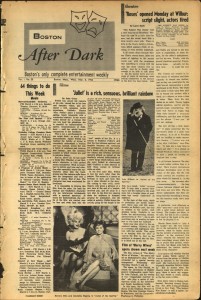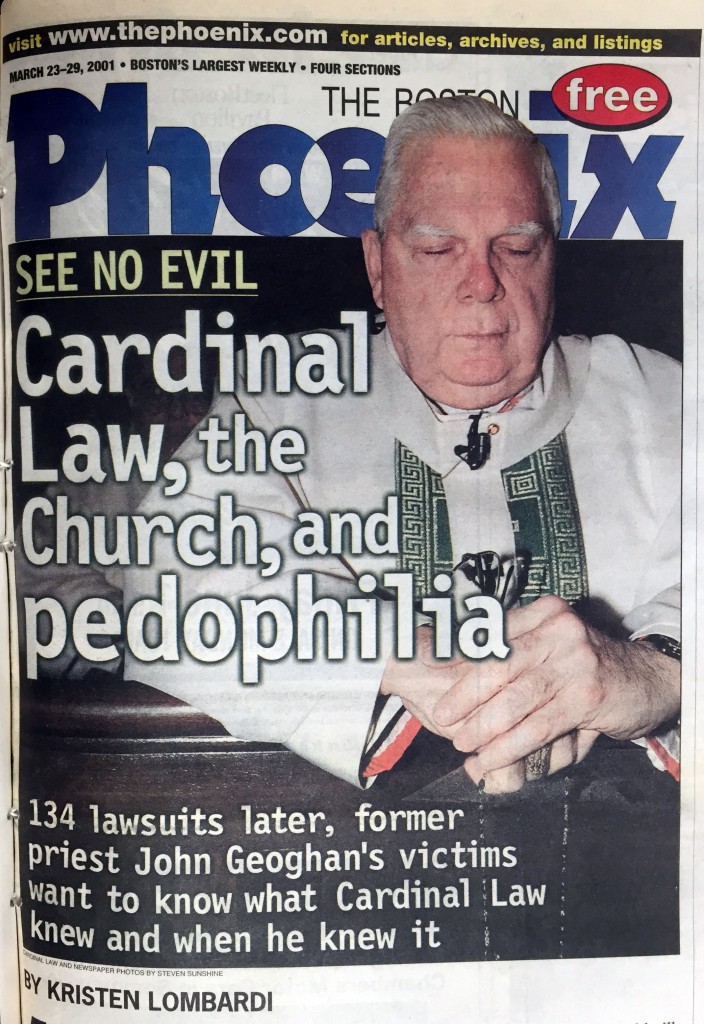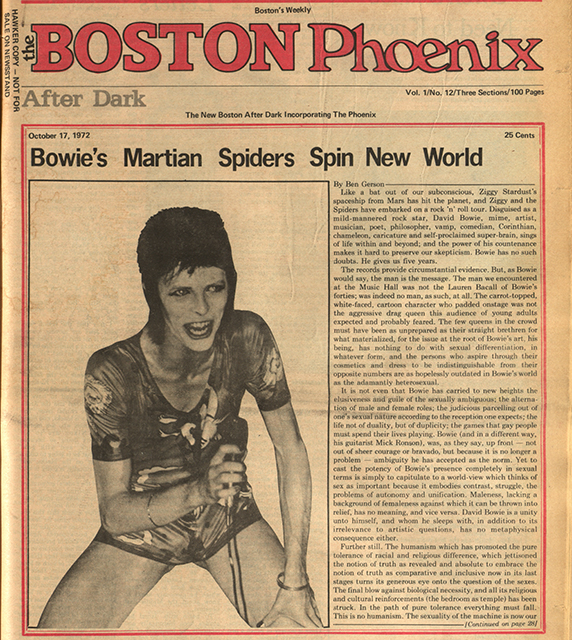The Boston Phoenix: St. Patrick’s Day, Busing, and a Divided City
The following is a series written by archivists, academics, activists, and educators making available primary source material, providing pedagogical support, and furthering the understanding of Boston Public School’s Desegregation history.
For many, St. Patrick’s Day is undoubtedly one of the most important dates in the Boston calendar, highlighted by the annual South Boston parade. But in 1974, St. Patrick’s Day occurred at the beginning of the Boston busing crisis, a controversial solution to court-ordered citywide school desegregation. From 1971-1976, The Boston Phoenix covered the crisis with over 70 in depth articles. On March 26, Phoenix journalist Michael Ryan penned “Where was everybody on St. Patrick’s Day?” addressing the conspicuous absence of politicians at parties and the parade.
At the center was State Senator William “Billy” Bulger’s, brother of mob boss Whitey Bulger, cancellation of the traditional St. Patrick’s Day party at Dorgan’s restaurant in South Boston. Bulger canceled “to draw attention to his contention that South Boston would be irreparably damaged as a neighborhood, its cohesion destroyed and its spirit shattered, if the forced busing plan for school integration were to go into effect as scheduled for September.” Instead, he held an open house after the parade which was only attended by one political figure, Father Sean McManus.
In response, State Representative Royal Bolling held his own party, “Roxbury’s Salute to St. Patrick’s Day.” Bolling, unlike Bulger, was a supporter of the court-ordered desegregation as author of the Racial Imbalance Act of 1965. He also secured funding for METCO (Metropolitan Council for Educational Opportunity) which assisted with school desegregation. However, his party also garnered very little attendance from politicians.
Were the politicians at the South Boston parade, which normally drew 200,000 spectators annually in the 1970s? Yes, and no. Billy Bulger attended before his party. Mayor Kevin White, who in 1967 ran a tough campaign against anti-desegregation Boston School Committee member Louise Day Hicks, decided at the last minute to attend the parade. More importantly, Hicks—by then a Boston City Council member—and fellow member Albert Leo “Dapper” O’Neil, both ardently anti-busing, were in attendance and received cheers from the crowd. The busing crisis clearly had divided the city. The Phoenix’s Ryan concluded that “the political leadership of the state, so conspicuous on the busing issue, had done it again.”
The Boston Phoenix Collection and METCO records can be viewed at Northeastern University’s Archives and Special Collections. In addition, Northeastern University’s Archives and Special Collections is coordinating a multi-archive scanning project whose goal is to make available archival material that relates to how and why busing happened in Boston, as well as the after effects it had on the community. The project announcement is available on Snell Snippets.




